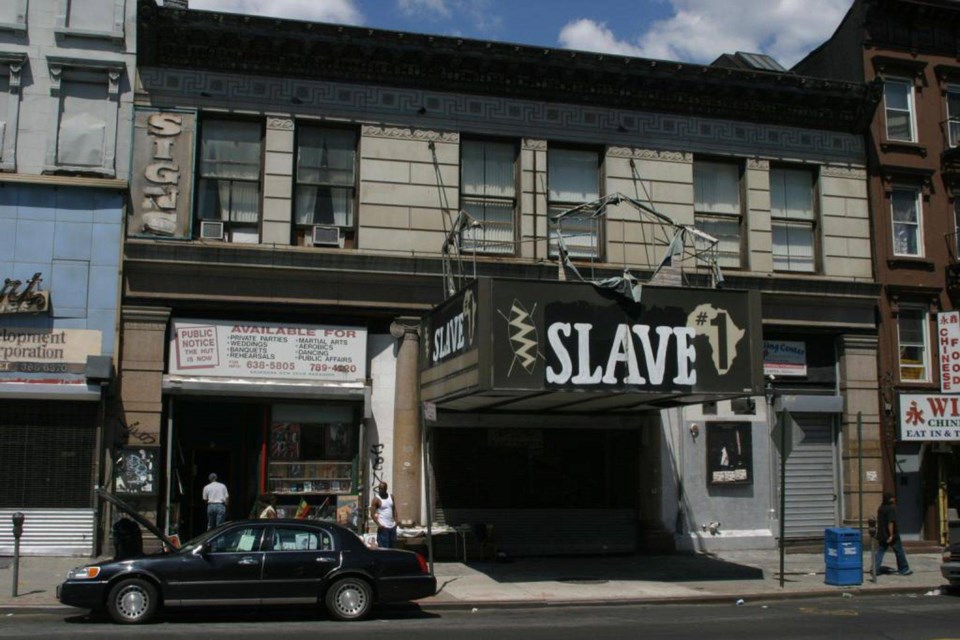The site of Bed-Stuy's historic Slave Theater, a former hub for black culture and political activism, will be redeveloped as yet another co-living space, reports NY Curbed.
The London-based co-living firm The Collective has purchased the site at 1215 Fulton Street for $32.5 million and will bring its concept of short-term leases in apartment-like spaces to a second location in Brooklyn. Last October, The Collective already announced another project in Bushwick, close to the Brooklyn Triangle.
"We are committed to honoring the rich history of the Slave Theater and the legacy of Judge John L. Philipps," the company said in a statement. "We will develop our proposals with open eyes and ears, and a commitment to ensuring a positive impact for the neighborhood and the people living in it."
Founded in 1913, the former majestic theater structure at 1215 Fulton was initially known as The Regent and gained a reputation as one of the first theaters in New York to regularly show African-American directed movies. In 1984, it was purchased by Judge John Phillips who transformed it into the Slave Theater. In the late 80s and early 90s, it gained a reputation as a hotspot for political activism with the Reverend Al Sharpton's Action Network hosting frequent rallies.
The theater shut its doors in 1998. While Judge Phillips maintained the deed to the property, he lost control of his estate when in 2001 then district attorney Charles Hynes had Phillips declared the judge legally incompetent after an investigation.
Many considered the investigation to have been politically charged, as Judge Phillips was at the time mounting a challenge to Hynes in the DA's race. In 2008 when Phillips died, the deed to his estate passed to his nephew the Reverend Samuel Boykin of Ohio. However, in 2011, Bank of New York put the property on the auction block, because Boykin was in debt, and several liens had been placed on the theater.
Since then, the site has changed ownership several times, and despite the efforts of supporters to stop redevelopment and landmark the building, by 2016, it was fully demolished. The site went up for sale again last year.
Plans for the Fulton Street site are still being finalized, but The Collective is planning offerings similar to those available at its original London site, "Old Oak." The London location offers studios with private kitchens and suites with shared kitchens for weekly and monthly fees. There, monthly rents for studios range from $1,827 for four months to $1,631 for a year. Private rooms are between $1,574 for four months to $1,378 per month for a year.
The company announced plans to meet with stakeholders in Bed-Stuy to determine how it can best fit into its new neighborhood.
Sam Garfield, the strategic communications and growth lead of The Collective's U.S. operations, stressed that the company will "not apply a cookie cutter approach" to how they will develop their programming, but will instead be more "site-specific" with the input from the community. This may include publicly accessible classes and workshops.
Both Brooklyn projects are due to be completed by 2022.




